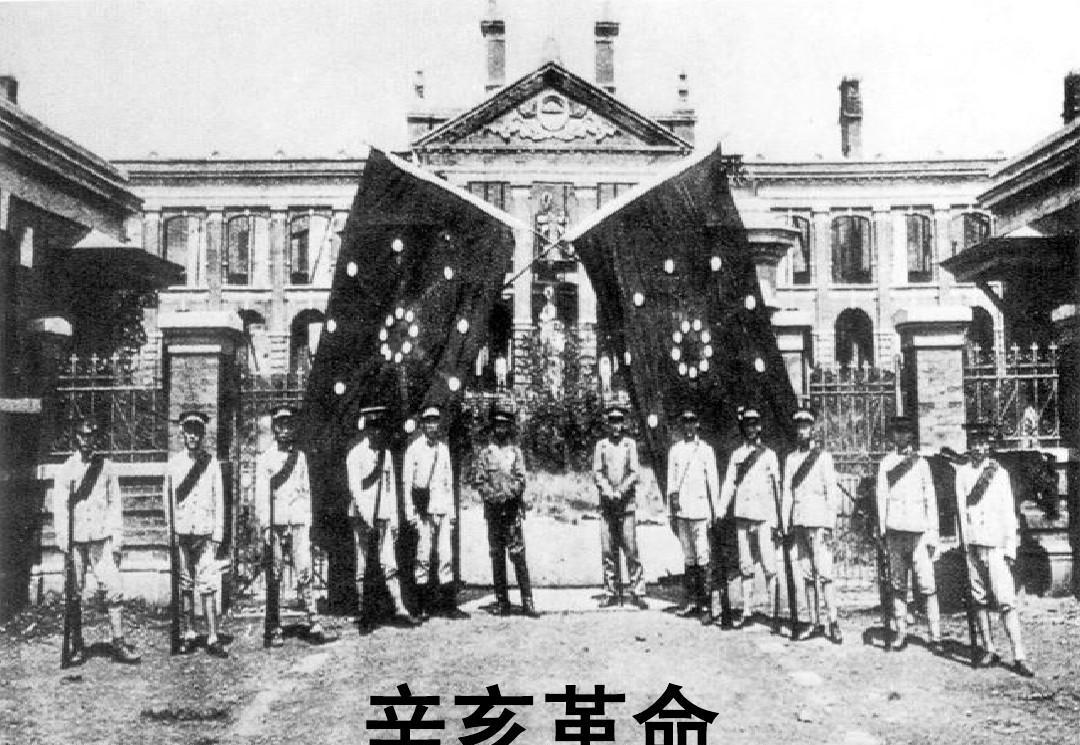
110 years ago, a gunshot at the head of Wuchang City brought us the first republic in Asia, which was a great change in Chinese history for thousands of years. When it comes to the history of China in the 20th century, a key word is undoubtedly "revolution", from the Xinhai Revolution to the National Revolution, to the Communist Revolution, all the way to the peak of the development of the Great Proletarian Cultural Revolution, it can be said that it ran all the way on the radical road, and the Xinhai Revolution as the beginning has so far been widely discussed.
Some people say that the Xinhai Revolution succeeded, some people say that it failed, but did it succeed or fail? If the purpose of the revolution was to overthrow the imperial system, it was obviously a success, and from the first gunshot of Wuchang, within a few months, the huge Qing Empire was in vain. However, if the purpose of the revolution is to establish a modern political civilization of democracy, republicanism, constitutionalism, and the rule of law, and to realize the prosperity and strength of the country, it is obviously a failure, a very thorough failure, and the people's troubles in the early days of the people are knotted, and the people's livelihood is not needed to be repeated, and even sun Yat-sen, the founder of the revolution, said that "the revolution has not yet succeeded, and comrades still need to work hard." Obviously, the Xinhai Revolution ended thousands of years of autocratic imperialism and replaced it with a republic, which was a fundamental turning point in China's history, and as for the success or failure of trying a completely new political system after the revolution, it was part of a greater change, that is, the all-round transformation from traditional society to modern society that is still in the process, and the revolution itself that occurred in Xinhai should not be held responsible.
Who led the Xinhai Revolution? The official textbooks say that the bourgeoisie led the revolution, so calling the Xinhai Revolution a bourgeois-democratic revolution is an ideological dogma without factual basis that there is no market. It can be said that with the degree of industrial and commercial development in China at that time, there were few bourgeoisie in the whole country, and a limited number of bourgeoisie with insufficient development and weak strength were only enthusiastic about patriotic struggles such as the movement to recover the rights of interest, and reform within the system such as the constitutional movement, and they were not interested in revolution outside the system, preferring to follow Kang Youwei and Liang Qichao rather than follow Sun Yat-sen. The leaders of the Xinhai Revolution were actually a group of young students, including international students and students of the new-style schools in China, who became professional revolutionaries after they left school or left school, or who threw themselves into the pen and became officers and soldiers of the new armies everywhere, Sun Yat-sen, Huang Xing, Cai Yi, and Jiang Yiwu, who could make a long list. Therefore, the Xinhai Revolution can be said to be a revolution of young intellectuals.
In recent years, conservative ideological trends have prevailed in the ideological circles, and the criticism of Xinhai and May Fourth is very marketable, accusing the Xinhai Revolution of interrupting the path of peaceful reform of the constitutional monarchy in the late Qing Dynasty and causing various chaos in the early years of the Republic of China, which is more than worth the loss. Is this really the case? To be sure, the Qing court's New Deal at the end of the Qing Dynasty was still remarkable, and it cannot be said that there was no sincerity in reform, but when a "royal cabinet" was elected in 1911, the constitutional commitment of the authorities had actually gone bankrupt, and the constitutional gentry turned to revolution. The Constitution of the Constitutionalists was a virtual monarch and a republic, while the Qing Court's 1908 Promulgation of the Outline of the Constitution still stipulated that the emperor should concentrate all powers in one, and the subjects could not disagree, completely exposing the hypocrisy and stubbornness of the Manchurian aristocratic clique. In fact, at the time of the Xinhai Revolution, some people of insight pointed out that revolution and constitutionalism are the same way to go (Du Yaquan), both of which are to abolish the autocratic system and establish a democratic constitutional government under the representative system, but the revolutionaries' ideas are more intense, including the demand of "expelling the Tartars and restoring China" for racial revolution.
The Xinhai Revolution is different from the successive dynastic changes in Chinese history, and the republican imperial system is a major change in the millennium, and its significance has not yet been fully understood and brought into play, and it will certainly unfold with the advancement of China's modernization.